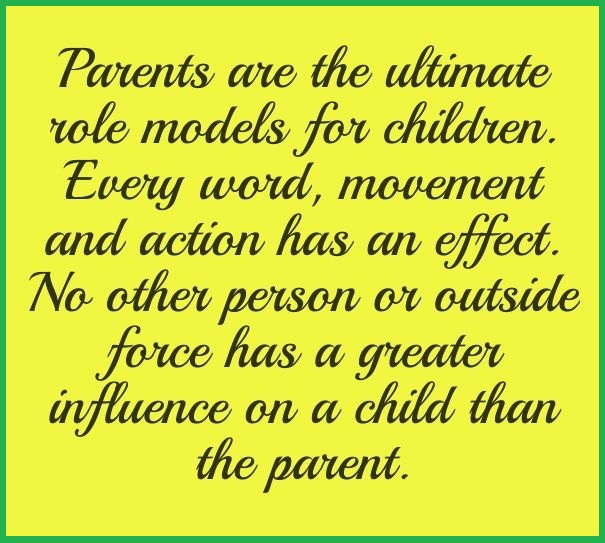There is no experience like being a parent. It’s full of obstacles as well as rewards. One specific issue is that parents may unintentionally contribute to anxiousness in their children. It’s a more frequent occurrence than most parents think. It’s also unintentional, as parents are unaware of the extent to which their children absorb their habits. Lets see more in to Parental Behaviors That Trigger Childhood Anxiety.
The people who spent the most contact with the child—their parents—may be the source of these anxiety-inducing actions. On the other hand, inadvertent negative actions by other people may also be a factor. Those who spend a lot of time with children may be among them. grandparents. friends or spouse of a parent. Teachers.
10 Parental Attitudes That Could Cause Childhood Anxiety in Children
These are five things that parents might do without realizing it could make their child anxious. Additionally, we’ll offer ideas for reframing each habit so that it becomes good instead of negative.
SEE ALSO: 7 Signs You are Making Life Harder Than It Needs To Be
Keep in mind that there are no quick fixes when you read through each of the subsequent principles about parental behavior. They need persistence and patience, as well as occasionally the assistance of a licensed counselor.
High Expectations
It’s typical for parents to have high expectations for their children, but it’s important to understand how this affects them. Children may experience tension and anxiety when their expectations are overly high or unreasonable. An intolerable amount of pressure to succeed can be placed on a child, for example, if they are expected to be the best athlete, excel in each subject, or land a prestigious job.
This pressure may show up as low self-esteem or a fear of failing. In more extreme cases, it may be the root cause of anxiety disorders in children.
How to Correct It:
Achieving a balance between understanding and support and high expectations is crucial. A healthier, more encouraging atmosphere can be created by motivating kids to put out their best effort, recognizing each child’s distinct talents and interests, and rewarding effort instead of just accomplishment.
Keeping the Facts From Your Youngster
To keep their kids safe, parents frequently keep hard facts from them. However, kids are very sensitive and can sense tensions that aren’t spoken. Children may experience uncertainty, worry, and anxiety when they sense something is off but aren’t provided with clear information.
SEE ALSO: How Your Beliefs Influence Your Destiny: A Positive Mindset Vs. A Fixed Mindset
For instance, failing to have age-appropriate conversations with kids about health concerns or financial concerns in the family can increase their anxiety. Rather than receiving information from an adult or parent, kids use their youthful imagination to fill in the blanks.
How to Correct It:
Encouraging and trustworthy communication concerning life’s unexpected turns can be given to children in an appropriate manner based on their age and maturity. Describe the circumstances. Make sure kids know that knowledge can teach them how to overcome obstacles.
Childhood Anxiety May Be Caused by Over protection
Overprotecting kids can unintentionally prevent them from learning coping mechanisms and resilience. It makes sense that parents would wish to protect their kids from harm. Overprotection, though, may keep them from encountering and mastering everyday obstacles. Parents may occasionally reflect their anxieties onto their children.
Over protection can take many different forms. It could seem like you’re always stepping in to resolve disputes amongst kids. It could also entail doing things for them which they are capable of accomplishing on their own. Additionally, it can entail preventing kids from taking age-appropriate risks. These behaviors may make children feel less capable of handling life’s obstacles on their own, which can result in anxiety in childhood.
SEE ALSO: How to Maintain Your Positive Attitude When Everyone Else Is Negative
How to Correct It:
Take a step back and inhale deeply. Allow children to be children. Talk to your kids about the things they’ve felt protected from. It’s not necessary to drop your defenses entirely at once. Make small progress. It’s acceptable to begin small.
Childhood Anxiety May Result from Parents’ Low Tolerance for Angst
Children who have parents who are not tolerant of their frustrations may grow up to be anxious. Tension arises when parents respond angrily to typical child behavior, such making errors or acting out.
Youngsters may start to feel extremely self-conscious and fear making mistakes. However, they are secretly terrified of disappointing their parents. This can cause a variety of problems in addition to worry, such as perfectionist or low self-esteem.
How to Correct It:
Adults, including parents, should become proficient in a few coping strategies. To release some steam, go for a walk. When anything annoys you, take 10, then relax before retaliating. Publish your negative thoughts in a journal. It’s critical to control your annoyances and react to kids’ conduct with tolerance and compassion.
SEE ALSO: The Importance Of Positive Self-Image – Being Kind To Yourself
Overeager Need to Be in Charge of Everything
An unduly authoritarian parenting approach can limit a child’s capacity for self-governance and experience-based learning. A child’s confidence may be damaged when parents micromanage every aspect of their lives, including their friends’ and hobbies. Consequently, it frequently results in elevated anxiety.
How to Correct It:
Youngsters require room to explore, make errors, and learn since this fosters their sense of independence and self-worth. Fostering self-reliance while offering direction and assistance contributes to the development of a child’s capacity to manage obstacles in life.
Unable to Love the “Genuine” Child
Anxiety and other long-term emotional problems might result from conditional love. However, what is that? When kids believe they need to fulfill certain requirements in order to be loved.
Children may become insecure and feel unworthy if they think their affection is based solely on their conduct, accomplishments, or other characteristics. Conversely, unconditional love promotes emotional stability and a sense of acceptance.
Ways to Mend It:
Give the kids credit for their deeds as well as their personalities. Don’t be hesitant to express your pride to them. You are teaching children self-esteem, not indulging them. Just make sure you compliment them in a genuine way.
Deregulation of Emotions
Instability can result from parents who regularly display emotional dysregulation, which includes overreactions and emotional outbursts. Kids know that. Even worse, they fail to recognize that the explosion is not directed at them.
They become anxious because they fear that they will provoke a bad reaction.
SEE ALSO: The Benefits of Talking Less and Listening More
How to Correct It:
Parents ought to look for methods to create a more tranquil atmosphere. They can do this by learning how to handle stress, asking for assistance, and responding in a composed and reliable manner.
Biases and Fact Distortion
Children may experience bewilderment and fear when parents repeatedly perceive events and respond to them based on their own prejudices or skewed perceptions. Youngsters look to their parents to assist them in understanding the world.
However, if the data they are given is distorted or contradictory, it may result in a faulty perception of the outside world and of themselves, which would be unsettling and insecure.
How to Correct It:
Honesty and objectivity are qualities that parents should aim for when interacting with their kids. To completely remove their prejudices, they must first acknowledge them and discover the underlying causes of their beliefs.
Childhood Anxiety May Be Caused by a Lack of Empathy
In order to support a child’s emotional development, empathy is essential. Empathic parents may not always be able to properly identify or meet their child’s emotional needs. Children may experience anxiety and feelings of loneliness as a result of this callous disregard for others. They could feel misinterpreted and unsupported as a result.
How to Correct It:
Despite having empathy, many parents struggle to provide a good example for their kids. Being empathetic takes more than just listening. It entails listening to their kids. It also entails showing them that you care about them and validate their feelings. Developing more empathy over time is achievable, but it will require time and effort.
Deficiency in the Love and Relationship Model
Children who are exposed to toxic relationship dynamics may experience anxiety and find it difficult to build healthy connections, particularly in situations where they are required to meet their parents’ emotional demands. This relationship might become the norm.
SEE ALSO: 10 Golden Principles for Winning in Life.
How to Correct It:
Parental guidance and modeling of positive relationship dynamics are essential. They ought to look for partnerships built on understanding, communication, and respect for one another. Children should be encouraged by their parents to explore their identities and interests. These will support self-reliance and confidence outside of the context of the parent-child bond.
Conclusion
Establishing a more comforting and anxiety-free atmosphere for kids can be greatly aided by acknowledging and resolving parental behavior. It requires serious self-analysis and honesty to identify these parental tendencies. The fact that the “fixes” offered are difficult and frequently need for counseling should also be emphasized. The frightening statistics on childhood anxiety persist. We need to examine our own self as a culture and consider what more we might be able to do to support our children.







